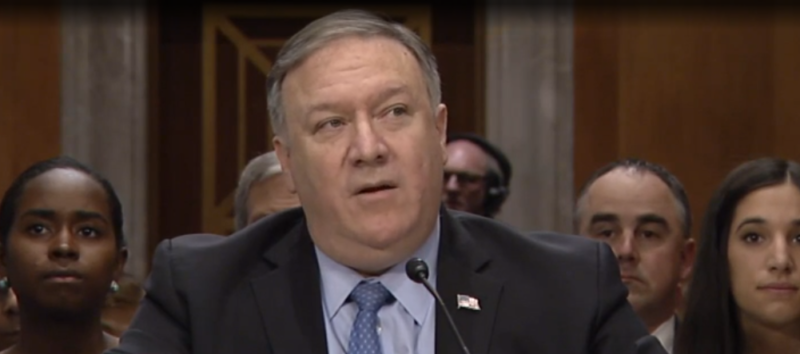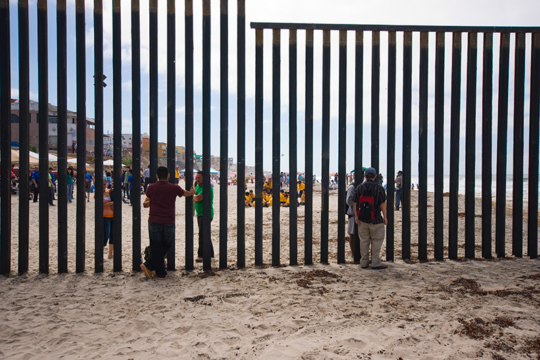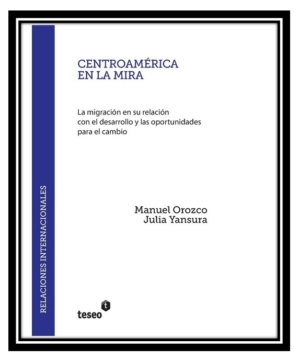
Natural Gas Market Outlook
Given their close proximity to the United States, LAC countries are well-positioned to capitalize on the surplus of US gas exports and current buyer’s market.
A Daily Publication of The Dialogue
The administration of U.S. President Donald Trump on March 30 cut direct foreign aid to Guatemala, El Salvador and Honduras. The move followed Trump’s threats to end some $450 million in aid to the so-called “Northern Triangle” countries, saying they have failed to prevent illegal migration to the United States. How will the decision affect the three Central American nations? Will the move alter migrant flows to the United States? Will Guatemala, El Salvador and Honduras make any major policy changes or turn elsewhere for aid as a result?
Salvador Paiz, president of FUNSEPA and vice president of FUNDESA in Guatemala City: “More than 76,000 migrants crossed the U.S. border without authorization in February, an 11-year high. Harsher detention policies have not deterred thousands of families from fleeing violence and poverty. The cuts in aid are unlikely to generate any substantive policy changes in the short term and might even spur additional migration. While it has become a common practice to group Guatemala, El Salvador and Honduras into the construct of the ‘Northern Triangle,’ the three countries are, in fact, independent and have their individual characteristics. In the case of Guatemala, some people do flee to escape from gang violence. However, numerous studies demonstrate that the overwhelming majority of people migrate looking for economic opportunities to better the quality of life for themselves and their families. The announcement to cut aid to the region seems like a ‘cold turkey’ approach to reassess how the aid is invested and to renegotiate the terms of engagement with each of the three Central American governments. One could argue that it is an opportunity to shift from a charity mindset to a job-creation mindset. The private sector is the natural ally to partner with when it comes to generating the requisite new jobs at scale. The heavy-handed cut in aid sends a message to local governments about their inadequate results in curbing illegal migration. However, it also sends a message to transnational criminal organizations (TCOs), which are joyfully celebrating this isolationist blow. Local governments are ill-equipped to fight TCOs without the support of the U.S. government, and TCOs are aware of it.”
Ana Quintana, senior policy analyst for Latin America and the Western Hemisphere at The Heritage Foundation: “The historically high levels of migrants apprehended at the southern U.S. border has the White House questioning the utility of foreign assistance to source countries in Central America’s Northern Triangle. In February, border officials reported detaining more than 76,000 individuals, 47 percent being family units with children. That number was the highest figure in over five years until the following month, where more than 92,000 migrants were apprehended, over 50 percent of which were family units with children. The figures demonstrate two key facts. First, the humanitarian and security crisis at the border is growing. Second, the United States and regional partners are falling short of their goal of decreasing migrant outflows from Central America. While we should be cognizant of the Northern Triangle’s domestic challenges, partner nations should push to see real change. For any country, particularly the United States, geography determines foreign policy priorities. It is critical that the Trump administration use this opportunity to find better methods of improving cooperation with our regional counterparts. An important component to this strategy is ensuring funds get to where they are needed. To do so, the administration must continue to reform and streamline foreign assistance programming by addressing burdensome legislative directives and earmarks. Central America’s security and stability is a long-term project, and the United States must be in it for the long haul.”
Sarah Blodgett Bermeo, associate professor in the Sanford School of Public Policy at Duke University and associate director of the Duke Center for International Development: “Migrants and asylum seekers leaving the Central American countries of El Salvador, Guatemala and Honduras are fleeing a combination of violence, food insecurity linked to climate change and lack of economic opportunity. President Trump’s decision to cut foreign aid to these countries removes a key tool the United States has to decrease future migration by improving the underlying conditions forcing people to migrate. Foreign aid is essential for funding regional security initiatives combating organized crime as well as in-country programs building police capacity to counter gang influence. Well-targeted aid programs can be used to provide immediate food assistance and to promote the adoption of more climate-resistant and profitable crops as well as better agriculture techniques that will reduce the need to migrate. Aid can be used to invest in health, education and job training to improve conditions and economic opportunities in these countries. As a way to force the governments of El Salvador, Guatemala, and Honduras to stop migrants from leaving, the Trump administration’s move to cut foreign aid will be unsuccessful. Under international law, these governments cannot legally stop people from migrating out of their countries. Since much aid is channeled through non-governmental organizations and U.S. contractors, cuts will hurt vulnerable people, not the governments. Moves to make aid more effective and target it to the most vulnerable locations within countries would be far more likely to decrease future migration than the misguided decision to cut aid to El Salvador, Guatemala and Honduras.”
Ken Baker, CEO of Glasswing International: “From our perspective, a cut in aid will have a very negative impact on the countries of the Northern Triangle, and the most significant impact will be on the areas that are of greatest concern to the current U.S. administration. The money is not given directly to the governments, and it is mainly targeted to address the root causes of migration, bring accountability and reintegrate returned migrants, in the hopes that they will not return again to the United States. These countries will be less able to deal with the challenges of migration without these funds, the technical support and the ability of the United States to convene and mobilize different actors, such as the private sector, to address the challenges of violence and poverty that afflict their communities. Cutting off aid in such an abrupt manner, especially to critical programs, can also have devastating and counterproductive effects. It takes time to build up the confidence of a community, a partner or a school, to get them to join efforts and meet goals. Abruptly terminating these programs will ensure more challenges with migration, and with no thought-out or agreed-upon exit strategy, it will hurt organizations such as ours. The move will most diminish U.S. influence. There are certainly other countries, such as China, that would love to increase their influence in the region and take advantage of their newly re-established relations here.”
The Latin America Advisor features Q&A with leaders in politics, economics, and finance every business day. The publication is available to members of the Dialogue's Corporate Program and others by subscription.
Given their close proximity to the United States, LAC countries are well-positioned to capitalize on the surplus of US gas exports and current buyer’s market.
Migrant transnationalism, in addition to being an expression of culture, identity and love, is an important economic phenomenon.
Central American migration is linked to poverty, inequality, and violence in the region.
 Photo: U.S. State Department.
Photo: U.S. State Department.

